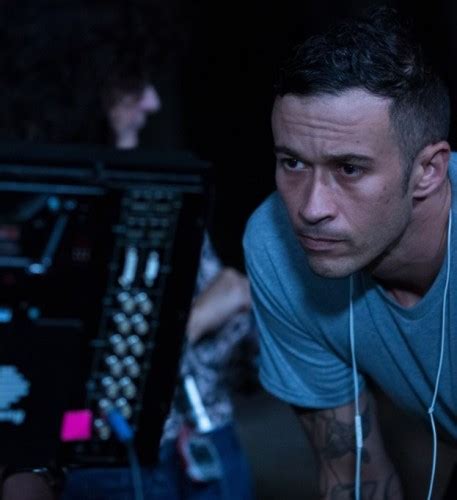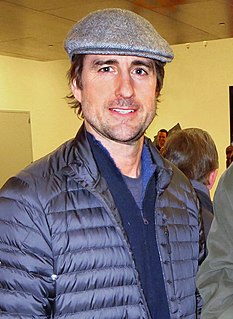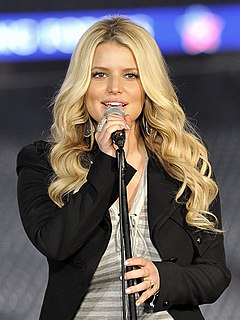A Quote by Steven Soderbergh
I'm trying to develop an approach to putting out a movie in wide release that makes some kind of economic sense for the filmmakers and the people that have a participation in the movie.
Related Quotes
I like filmmakers where, if their film comes on and you step in halfway through it, you can recognize that, hey, this is a Coen Brothers film. Or, hey, this is a Stanley Kubrick movie. You can recognize some filmmakers. Like, if you put on a Sam Raimi movie, you can tell that it's a Sam Raimi movie pretty quickly. I like a signature style that people can recognize and relate to, and connect with. I think that is part of why we seek out certain directors. We want to see how they view the world.
I had seen "Force Majeure" and I just love that movie so much. And I really wanted to artistically give a little hello to the filmmakers, and that kind of back and forth dialogue between artists that say, "I loved your movie. I was influenced by your movie. If I didn't have this job, I wouldn't be thinking of that. Do my TV show and then one day I'll make a movie where I can play with some of the visual themes in "Force Majeure."
We make a lot of movies that I don't think merit a wide release. We have this label called Tilt, and we have the movies come out on that, and that's fine. But it shocks me when, having done this a few times, when I really believe a movie should get a wide release, and I struggle to get it released. That does surprise me.
Even though it took forever to release a movie, and even though it's a small indie release, the fact that in five years someone will be skipping through Netflix, or Amazon, or whatever and say, "Wow, that was a really cool movie. That was a really great story. Or I was really creeped out, or intrigued by that." You almost kind of forget what it took to get there, or was it in the theaters or not. So that's kind of exciting as a filmmaker. That it doesn't really matter as much the release platform, as much as how can I see it?
My greatest sense comes from the experience of performing in the movie. When I have a great experience, that becomes a perfect movie. If it makes a nickel, it's still perfect. The same is true with a movie that's a bad experience. If it makes a bejillion dollars, I will hate it till the end of time.
It doesn't seem weird to me, at all. I'm in Baton Rouge getting ready to direct a movie for Sony, and I'm in the movie and I'm directing it. I know it's kind of this thing where some people find it difficult. I just finished a movie with Mario Van Peebles and he acted and directed as well too. I think we all feel similar that it just kind of seems natural.





































